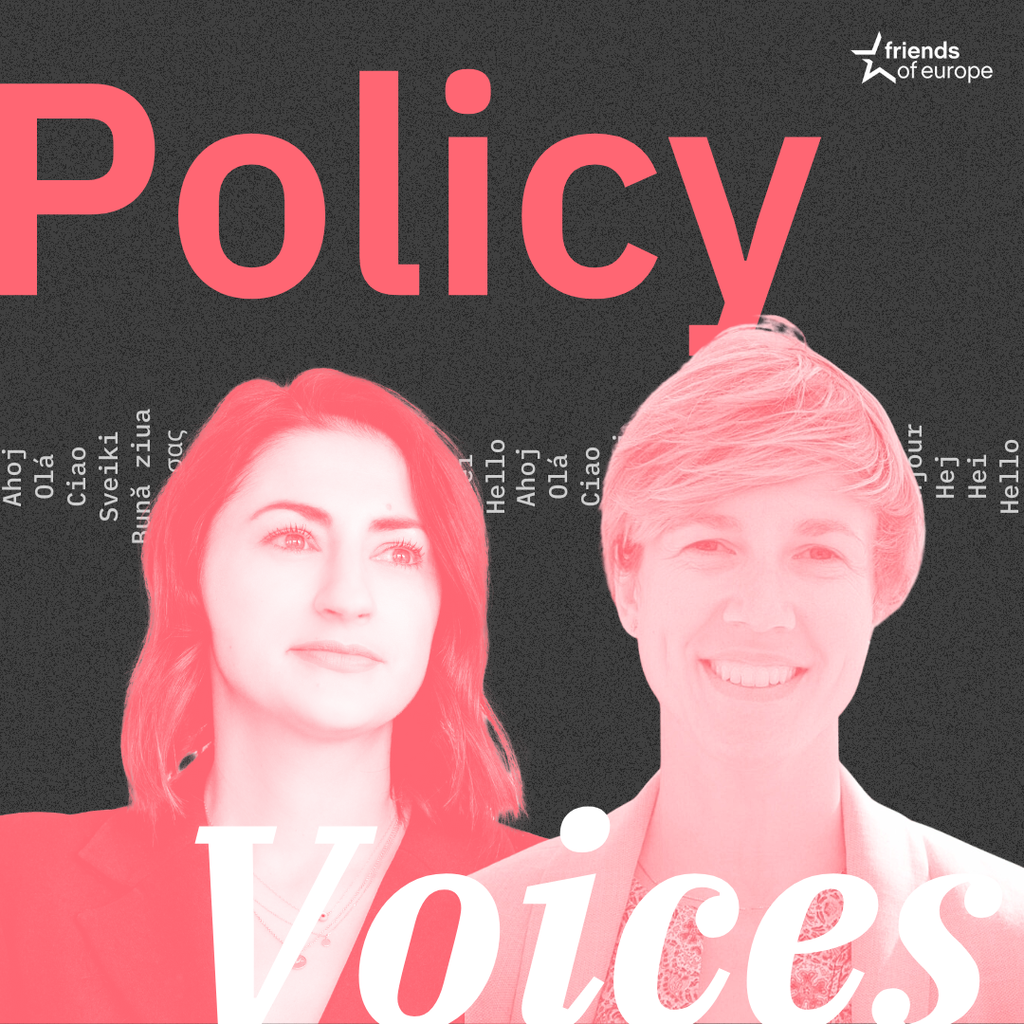A bold vision for a climate-neutral and competitive Europe
Next event In person & livestreamed

- Area of Expertise
- Climate, Energy & Natural Resources
Climate, Energy & Natural Resources

President of the Romanian Fiscal Council, former member of the European Parliament, former Romanian finance minister and Trustee of Friends of Europe
The war against the coronavirus is not yet won, but vaccines are now available and it is only a matter of time before ample supplies are rolled out worldwide. Even if biological foes visit us again, the lessons learned from this pandemic should help us increase resilience in the future.
To this end, more has to be spent on public health, R&D and preparing people for dealing with similar events. Big pharma, with all their merits in developing vaccines, although heavily subsidised by governments, should be less concerned about high profits and try to be better corporate citizens.
But while pandemics can be dealt with, albeit at huge costs, climate change is a truly existential threat. Unlike with past extinction-level cataclysms, we have the power to stop it – if we act now. Scientific evidence indicates that carbon emissions have to be drastically reduced; carbon neutrality must be reached within a couple of decades in order to avoid the extinction of humankind.
It is more than a pity that the Club of Rome’s and Jay W. Forrester’s studies were disregarded by governments and technological optimism got the upper hand. In 2007, a United Kingdom Treasury report noted that environmental issues and risks are the most blatant ‘market failure’ in history and that public intervention is required to reverse a disastrous course of events.
We must rethink economic growth in terms of human and ecological concerns
The emphasis placed on tackling climate change and ‘greening’ economies by the EU institutions, the Biden administration and – nota bene – central banks and international financial institutions is a remarkable change of attitude. The response of industry, albeit half-hearted at times, is a good omen too.
We need to see a breakthrough in our policies to significantly reduce carbon emissions; this includes a ubiquitous carbon tax, adapting lifestyles and changing production models by gradually eliminating fossil fuels.
Redefining the Gross Domestic Product (GDP), which includes negative externalities, is also needed. As a matter of fact, GDP, as it is computed now, can grow even as Gross Domestic Wellbeing (GDWe) goes down. We must rethink economic growth in terms of human and ecological concerns.
How we deal with climate change also conditions the future of democracy. Thousands or even hundreds of years ago, the struggle to secure basic food and water needs was the paramount worry for most people. Conflicts and wars, both small and big, were waged in order to secure life’s essentials. In modern times, conflicts and wars for the control of strategic resources move the levers of power and economic wellbeing; geopolitics ultimately boils down to these needs. Resources such as oil and gas are, ironically, at the roots of our current existential conundrum.
Climate change will likely further augment illiberal propensities
Historian Karl Wittfogel wrote in “Oriental Despotism” that those who controlled access to water in ancient societies held an unassailable sway over power – over their “hydraulic civilizations”.
The public and private ownership over resources is rooted in the logic of market economies and antitrust laws operate to prevent abusive concentration of power. In the future, however, it could become impossible to formulate a scenario of total control of such resources that does not move into authoritarian territory by design. This is because climate change, unless properly tackled, could change the very dynamics of social and economic relations due to increased scarcity of natural resources and skyrocketing prices.
Illiberal tendencies have for years now been on the rise around the world. Analogies have been made between the inter-war period in Europe and the financial crisis that erupted in 2008 due to developments such as rising income inequality, social unrest, bailouts in the financial industry and subsequent distrust of elites. The COVID-19 crisis has brought back many of these sentiments.
Climate change will likely further augment illiberal propensities for a simple reason: action must be taken and time is of the essence. The slow and deliberative process of democracy may become too high a price to pay for some.
We live, quite literally, on borrowed time
But a ‘return of the state’ for dealing with climate change in a timely and effective manner is one thing and moving towards systemic authoritarian governance is another.
It is thus critical that governments act resolutely to reverse a process that can cause untold suffering to people, through proliferating floods, wildfires, droughts, hurricanes, unbearable temperatures and other adverse natural events. Action is also critical for averting tipping points and dangerous nonlinearities, which would cause water shortages and the prices of basic foods to skyrocket, leading people to desperation – and potentially widespread unrest, massive migration and wars.
We live, quite literally, on borrowed time when it comes to climate change. But decisive action can make the difference between salvaging democracy and recreating modern versions of ‘hydraulic civilisations’. Capitalism has to be overhauled to make it fairer and more inclusive; this is the way to gathering wide support for dealing with climate change. In the European Union, the Green Deal and NextGenerationEU, as well as measures to reduce carbon emissions, should be approached from this perspective.
It is time to act firmly and collectively in order to avoid true dystopia.
Next event In person & livestreamed

Past event In person & livestreamed

Past event In person & livestreamed

Past event In person & Livestreamed





Stay informed
We use cookies and similar technologies to adjust your preferences, analyze traffic and measure the effectiveness of our campaigns. Learn more about our privacy policy.